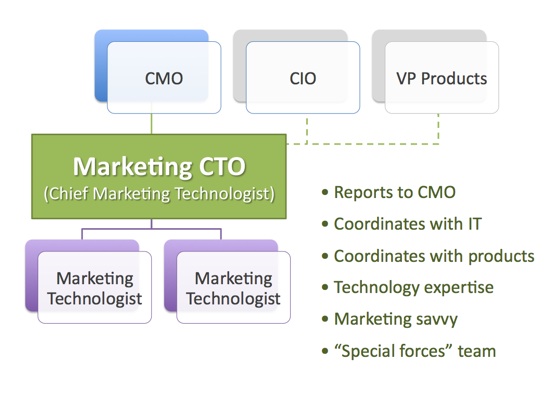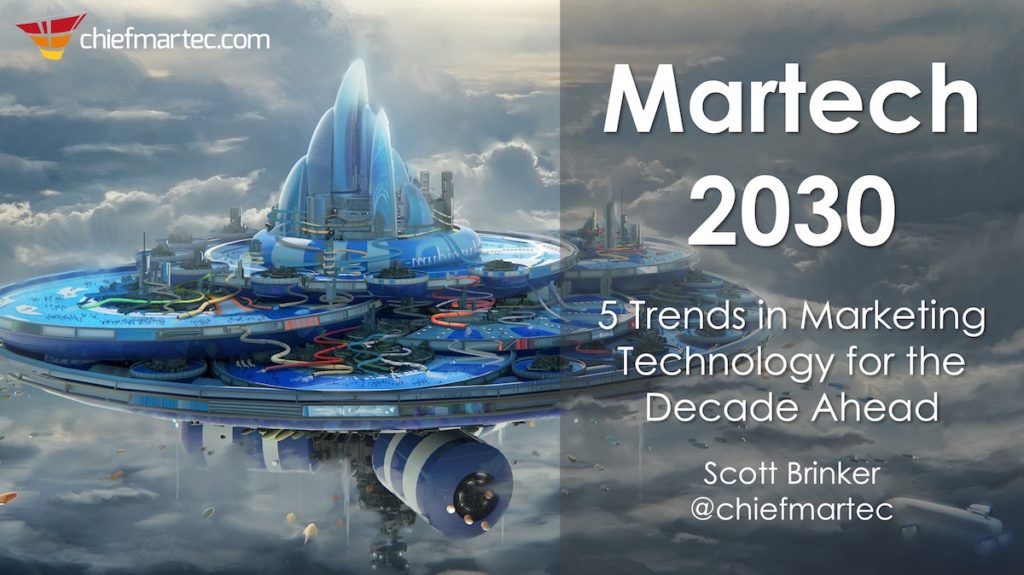Next week, I’ll be presenting at Search Insider Summit with an 18-minute, TED-style talk called Rise of the Marketing Technologist.
This time around, the event organizers — led by programming chair Gord Hotchkiss — asked speakers to put aside the usual topics and instead share our visions of where the future of marketing is headed.
So while I usually talk about post-click marketing and conversion optimization at such events, I’ve decided that this is the right venue to share some broader ideas about re-thinking the marketing organization.
My premise is simple: marketing must control its technological destiny.
To achieve this, marketing cannot rely on the IT department, outsourced agencies, or marketing technology vendors to lead the technical architecture of digital strategies. Each of those players has a part, but marketing must be the director of the play.
There are too many interrelated technical pieces to the overall picture — and the formulation and execution of marketing strategy is too entwined with the advance of technology now — to leave marketing technology leadership in someone else’s hands. Marketing must take ownership of that role.
How?
It’s time to embrace a new class of professionals in the marketing department: marketing technologists, who are software architects and engineers with marketing and business savvy. To assemble and lead this group, there needs to be a new senior leadership role for a marketing CTO or chief marketing technologist.
The marketing CTO reports to the CMO, not the CIO — although the role will certainly coordinate with IT and, increasingly, with product development. The mission of the marketing CTO is to orchestrate and innovate the gamut of technologies that enable state-of-the-art marketing: from marketing automation to landing page optimization, from web analytics to mobile analytics, from interactive ads to iPhone/Android apps.
Most of all, the aim of a marketing CTO is to give the CMO the power to use technology strategically in marketing.
If you happen to be at the conference, please do say hello. If you can’t make it though, I’ll put the presentation up on Slideshare soon — would love your feedback then.




6-month lead time on code releases doesn’t really work in the adaptive way marketing needs to operate. Multiple conversations this week about Q4 2010 changes that need to be submitted by 4/15.
Good example of the need for re-thinking legacy structures and processes! Not easy to change, but the acceleration of marketing clockspeed will slow for no one.
Completely agree with your statement that marketing cannot rely on IT department. Today’s marketing tools are more than just ‘branding’, ‘advertising’, and ‘direct mail’. They involve webinars, virtual trade shows, email blasts, social media, and more. The marketer that cannot embrace and fully understand technology will not be successful.
As for creating a “chief marketing technologist” I’m not so sure we need to add another layer of executive oversight to something every marketer in your team should know. OK, maybe a “marketing technology manager” title is a good bet, and the person will work with the marketing staff to identify technology needs, coordinate with IT whenever necessary, and help implement and better utilize the tech tools available.
Good luck with the presentation! I’m sure people will like it.
Good post and couldn’t agree more. I’d even argue in an e-commerce organization, especially one that’s positioning itself on innovation, the product development (i.e. the site) function should also report into marketing. In this scenario, the lines between online marketing and product development begin to blur or at least are critically linked. Would love to see the slides when they’re available.